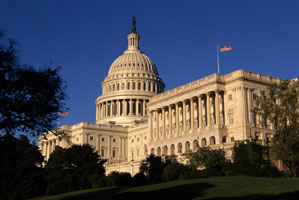find your perfect postgrad program
Search our Database of 30,000 Courses
Postgraduate (MSc, MA, MBA and PhD) Programs in Public Administration

In most countries, especially developed ones, government is by far the largest employer, with at least one-third of the workforce working for some level of government. Despite this, in many countries a host of services once provided by government are now being handled (if at all) by non-profit/not-for-profit organisations. In fact, the role of non-profit/not-for-profit organisations in both the formulation and delivery of public services has expanded. So, too, has the role of private sector organisations – via consulting, contracted service delivery, partnerships, and so on – in assisting governmental and non-profit/not-for-profit organisations. (External consultants, for instance, provide multiple services to government agencies, ranging from the auditing of programmes to the analysis and design of administrative systems.) As a result, the master’s in public administration degree is by no means limited, as it once was, to current or future government employees.
 Trends In Public Administration
Trends In Public Administration
Numerous substantial trends continue to drive this field, including (for government):
• changing demographics (especially the ageing of the population)
• globalised competition
• spread of new information technologies, with consequent increases in citizen awareness and demands
• increased labour mobility
• increased fear of global epidemics
• political backlash against taxes.
For non-profit/not-for-profit organisations:
• government retrenchment; programs scaled back due to financial pressures
• awareness of problems (due to internationalisation of news coverage)
• increased wealth being funnelled to non-profits/not-for-profits
• new awareness of what non-profits/not-for-profits can do, based upon learning what non-profits/not-for-profits elsewhere are doing.
These lists could have been multiplied, particularly the one for trends affecting government.
Choosing a masters program
Many public administration programs are one year in length, but a substantial number last for two years. The differences, moreover, extend beyond their lengths. Some are resolutely domestic in focus; others (such as Italy’s Bocconi), international. Some train students largely to work in government, others, in non-profits/not-for-profits. Some have a functional focus, offering tracks in budgeting and finance, for instance, whereas others focus on governmental units (local administration, for instance) or industries (such as healthcare). In addition, some focus on administration whereas others focus on policy (although the latter are more commonly called Masters of Public Policy programs.) The result is that students are potentially spoiled for choice.
On top of this sort of breadth, many schools offer two programs, one for those with limited or no experience and one for those with substantial experience and these can be very similar to MBA programs in Public Administration.
Increasingly, programs offer the chance to do an international exchange program. The London School of Economics, for example, exchanges with three foreign programs: Columbia (US), Sciences Po (France), and Hertie (Germany).
Some programs require at least several years of experience. Of those that do not, many require relevant coursework in social science or managerial fields (especially statistics and economics) and/or completing an internship during the program.
Many programs also look for:
• Demonstrated commitment to the public or non-profit/not-for-profit sector.
• A desire to take on leadership positions in public service.
• Internships in organisations, whether public or private, to learn about organisational dynamics.
MBA in Public Administration
An MBA in Public Administration provides graduates to work in high up positions in the workplace, particularly in non-profit and public service organisations. The MBA in Public Administration explores management within the executive levels of government agencies as well as that within other major organisations, and they are designed to teach students about the principles of public administration, public policy, and financial management.
While there are many specialised MBA programs in Public Administration available to study in the United States - in Europe it is an optional area of study that often forms part of a more general MBA program.
PhD in Public Administration
Studying a PhD in Public Administration will give students the chance to delve into this fascinating area in even more detail. A PhD in Public Administration will take a minimum of 36 months to complete full time – and 6 years as a part-time program.
Some universities off the option to study a PhD in the field as part of an integrated study program which enables the students to take some additional taught modules – the University of Birmingham’s Local Government and Public Policy PhD is one example of this. The Plymouth University Doctor of Public Administration is aimed at senior managers who work within local government or the public sector and is a four year work-based research doctorate. Meanwhile the University of Oxford offers a DPhil in Public Policy – a policy-focussed research degree taught using an interdisciplinary approach.
 Career Opportunities
Career Opportunities
Both governmental and non-profit/not-for-profit organisations increasingly employ both business methods, adapted from the for-profit sector, and people with business training. Nonetheless, they still attract people who are committed to trying to solve social problems. Given that they generally pay substantially less than for-profit businesses, people motivated largely by financial rewards are unlikely to flock to them. Non-profits/not-for-profits, for instance, still look for those with an interest and skill set in traditional fields such as fundraising, lobbying, and program development. Now, however, they increasingly look for sophisticated marketers, budget analysts, and entrepreneurs, people once found largely in the private sector.
Typical job titles
Government
• Consultant for community planning and development
• Policy advisor
• Economic consultant
• Program manager
• Public affairs specialist
• Community development organiser
• Research associate
• Public health advocate
• Budget analyst
Non-profit/not-for-profit
• Communications manager
• Program assistant
• Event co-ordinator
• Development manager
• Fund-raising associate
• Manager of volunteers
• Press secretary
• Lobbyist
Professional associations (UK and US)
• Office for Public Management (UK)
• Local Government Association (UK)
• Chartered Institute of Public Finance and Accountancy (UK)
• American Society for Public Administration
• National Academy of Public Administration (US)
Introductory readings
Public sector management
Chris Hakes and Debbie Reed, Organisational Self Assessment: For Public Sector Excellence (Bristol Quality Centre), considers the applicability of business techniques to public-sector management. More in-depth treatments of key functions include Philip Kotler and Nancy Lee, Marketing in the Public Sector: A Roadmap for Improved Performance (Wharton School Publishing), and Dennis M Daley, Strategic Human Resource Management: People and Performance Management in the Public Sector (Prentice Hall).
Non-profit/not-for-profit management
Those with substantial understanding of for-profit management might wish to consult Peter F Drucker, Managing the Non-Profit Organization: Principles and Practices (HarperCollins Publishers), which provides a very brief but insightful overview of non-profit/not-for-profit management. Those looking for a fuller treatment of key issues in non-profit/not-for-profit management should consider Sharon M Oster, Strategic Management for Nonprofit Organizations: Theory and Cases (Oxford University Press), and Alan R Andreasen and Philip Kotler, Strategic Marketing for Nonprofit Organizations (Prentice Hall).


